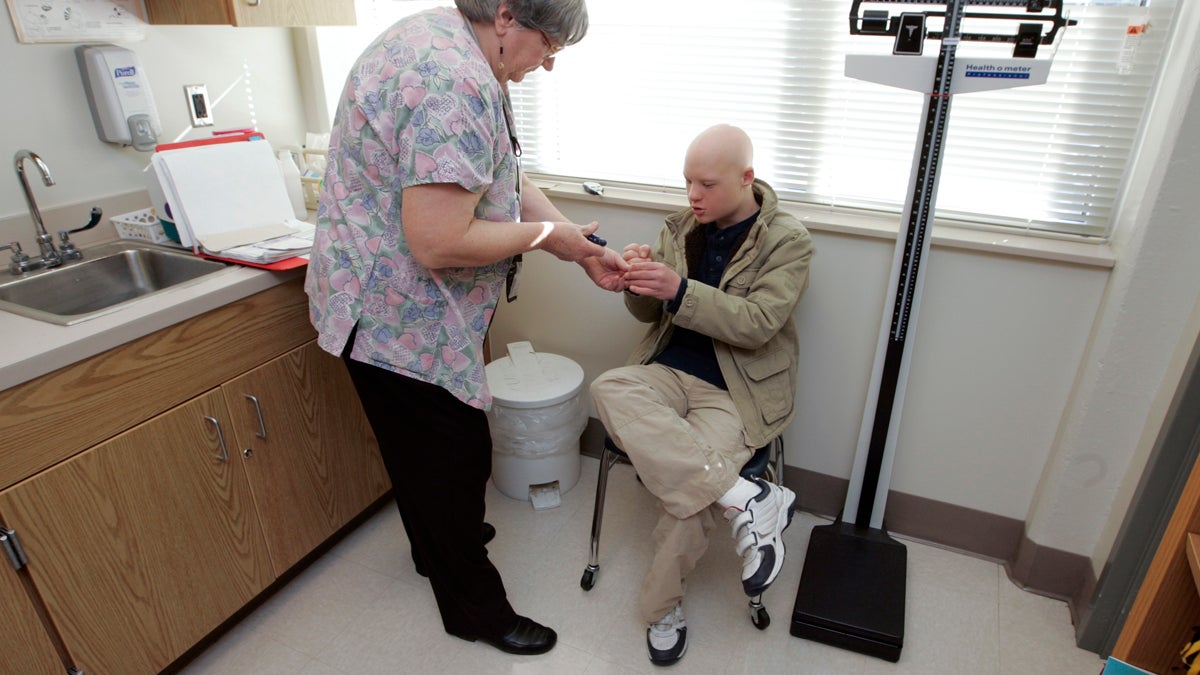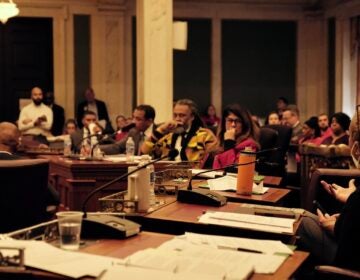Philly schools don’t bite on plans to outsource student health services

Three Philadelphia District schools currently lack nursing services every day of the week. (John Amis/AP Photo, file)
In May, the Philadelphia School District asked for outside proposals to help it provide better health services in schools without raising its medical budget.
The district received six proposals, but has now decided not to act on any of them.
“Some of what we found out was: we need to find out more,” said Karyn Lynch, chief of student services for Philadelphia schools.
Lynch says each of the pitches had flaws that kept the district from moving forward. For example, one proposal would have concentrated behavioral health services to a solitary provider. The district believes that would break federal regualtions for public medical assistance.
The district had help reviewing proposals from the Philadelphia Department of Health, Community Behavioral Health (a nonprofit provide of mental health services), certified school nurses, Drexel’s School of Nursing, Public Citizens for Children and Youth, as well as school-based leaders and parents.
The Philadelphia Federation of Teachers praised the district’s decision, calling its request for proposals “a privatization scheme.”
“The PFT will continue to call on the District to ensure that every child in every school has access to a full time certified school nurse,” said union president Jerry Jordan in a statement.
Many district schools do not have a full-time medical professional five days a week.
Three Philadelphia schools have no nursing services at all because the district says it has had trouble filling vacancies. Of the 184 nursing positions the district hopes to staff this year, six remain unfilled. Many other schools have a nurse only a few days each week.
Some parents and advocates, fearing the worst on a day when a school lacks a nurse, have urged district leaders to prioritize having at least one full-time nurse in every building.
Lynch, though, says not something the district aims for in the near-term.
“If we want to put a nurse in every single school…price tag right now, it would easily become another $20 million,” she said.
In addition to serving its own schools, the district also must provide health services for all private and parochial schools in the city under state mandate — making the district responsible for 339 schools.
“If we have a school with 43 kids, and we have a school with 1,500 kids, are we really going to put a full time nurse in every single building?” asked Lynch. “The goal for the district is to ensure that the health care needs for every student — as they are attending school — are addressed.”
Lynch’s example of 43 students is based on enrollment at a private school. The smallest district-run school serves about 170 students.
Before the state budget cuts of 2011, the district saw an average ratio of one nurse for every 750 students. Now, the ratio hovers around the state minimum mandate of one nurse for every 1,500 students.
“That’s just not reasonable in today’s times when you have so many fragile students with medical disabilities who are attending our schools,” said Lincoln High school nurse Peg Devine.
She says, too often, student needs fall through the cracks.
“At Lincoln High School we have well over 1,500 students, and yet I’m here by myself five days a week,” said Devine. “I’m supposed to have an assistant here two days a week, but she’s been pulled to cover an elementary school that doesn’t have a nurse, where they have a diabetic student.”
The district’s push to look for outside health services partners coincides with its decision to outsource substitute teaching services.
That plan has so far fallen well short of expectations. Leaders, though, say the substitute shortage did not influence thoughts on health care.
WHYY is your source for fact-based, in-depth journalism and information. As a nonprofit organization, we rely on financial support from readers like you. Please give today.





